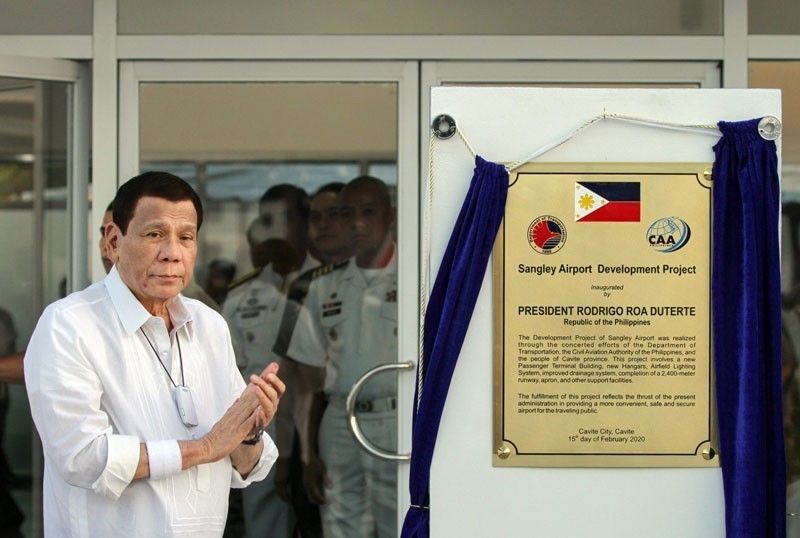Sangley, other China projects to proceed despite US contractor ban

MANILA, Philippines (UPDATE 2 7:15 a.m., Sept. 2) — The Philippines will not follow the US's lead in banning business with Chinese firms involved in reclamation activities in the South China Sea, clearing the way for Beijing-funded projects that President Rodrigo Duterte secured while taking it easy in enforcing Manila's rightful territorial claims.
“I will be categorical: Sangley (Airport) project will continue. All other projects involving Chinese companies that are banned in the United States can continue in the Philippines,” presidential spokesperson Harry Roque said in Filipino during a briefing on Tuesday.
The statement came minutes after Tan-led MacroAsia Corp. disclosed to the stock exchange that the company is looking at the national government for a final decision on whether to proceed with developing the Sangley International Airport together with the Cavite provincial government and China Communication Construction Co. Ltd. (CCCC).
CCCC was among the 24 companies blacklisted by the Trump administration from buying US-made products last week for constructing artificial islands in contested waters, marking a latest escalation of feud between the US and China.
“We have been completing the qualification documents for the award, but the pandemic has delayed our processes, including the completion of JV (joint venture) documents prior to any signing of legal or financial contracts,” MacroAsia Corp. said.
Roque said that while the Philippines respects US’s recent ban against Chinese companies, Washington cannot force Manila to enforce the same locally since “we are not a vassal state of any foreign power.”
The Sangley project, awarded last February before the pandemic struck, covers the first phase of reclaiming land for a new Cavite airport which is primed to decongest the old Ninoy Aquino International Airport, the country’s main gateway.
Under the project led by the Cavite province, contractors will fund the building of runways and ensuring that the airport will be able to host 25 million passengers a year by 2022. Succeeding phases will see passenger capacity increase to 130 million annually by 2050.
The project’s first phase covered by the contract is estimated to cost P208.5 billion. Including future developments, the entire undertaking has a price tag of P550 billion.
Sangley Airport plans led by the Cavite government is also separate and “independent” from the already-existing airport in the area used by private jets and cargoes, Transport Assistant Secretary Goddes Hope Libiran said in a Viber message.
“As of now, we continue to rehabilitate the original Sangley Airport since it is locally funded under GAA (General Appropriations Act) totally independent from Cavite’s plans,” she pointed out.
Roque’s statement does not only clear the way for Sangley Airport but also for the P301.26-billion worth of infrastructures to be bankrolled by Chinese aid under the “Build, Build, Build” program, that has been delayed by the pandemic.
“Our national interest is to ensure that we will finish all flagship projects under the government’s ‘Build, Build, Build’ program,” Roque said.
In a statement later on Tuesday, Huang Xilian, Chinese ambassador to the Philippines, welcomed Roque's assurance that Chinese firms can freely conduct business in the Philippines. "The participation of Chinese companies and individuals in domestic construction activities is legitimate, lawful and beyond reproach, lies entirely within its sovereignty," Huang said.
"We believe that the pursuit of an independent foreign policy is in line with the fundamental interests of the Philippines and its people," he added.
- Latest
- Trending























